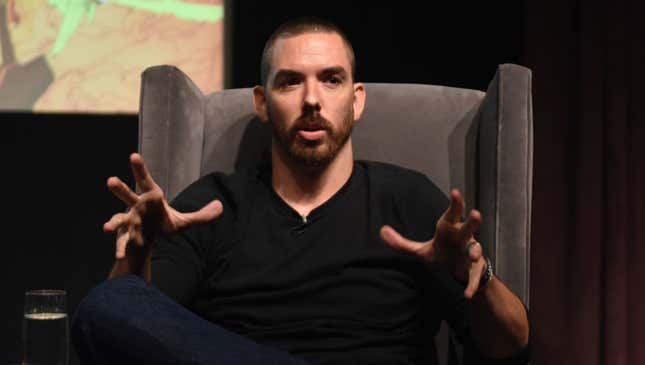
“Critical race theory” is the right’s latest buzz phrase in service of silencing discussion of America’s racist past and how it informs the country’s still very racist present. Last night, Riot co-founder and chairman Marc Merrill tweeted and quoted an article about how critical race theory is “a threat” from a journalist whose work informed Donald Trump’s now-rescinded 2020 executive order that heavily restricted federal diversity training.
On Twitter, the piece’s author, Christopher F. Rufo, described critical race theory as “the dominant ideology of America’s public institutions” and promoted his recent article as “a short primer” in which he explains “what critical race theory is, why it’s a threat to Americans of all racial backgrounds, and what you can do to fight it.”
Merrill retweeted Rufo’s tweet and added a quote from the piece: “Above all, we must have courage, the fundamental virtue required in our time: courage to stand and speak the truth, courage to withstand epithets, courage to face the mob, and courage to shrug off the scorn of elites.”
Merrill, the wealthy founder of one of the biggest video game companies in the world, later deleted the tweet, clarifying that he’s “a fan of [Martin Luther King Jr’s] ‘common humanity’ moral framework—not the ‘common enemy’ moral framework.” He added that “we should be fostering unity to come together and heal—not division. The question is how?” This is an interesting tack to take, in light of MLK’s own words.
“I have almost reached the regrettable conclusion that the Negro’s great stumbling block in the stride toward freedom is not the White Citizen’s Council-er or the Ku Klux Klanner, but the white moderate who is more devoted to ‘order’ than to justice,” MLK wrote in his 1963 letter from Birmingham Jail, “who prefers a negative peace which is the absence of tension to a positive peace which is the presence of justice; who constantly says ‘I agree with you in the goal you seek, but I can’t agree with your methods of direct action;’ who paternalistically feels he can set the timetable for another man’s freedom; who lives by the myth of time and who constantly advises the Negro to wait until a ‘more convenient season.’”
Merrill went on to link his own 2019 blog post, in which he correctly identifies many of the corrupting elements currently present in America’s political system (Citizens United, etc), as well as other factors that have led to widespread division. But the blog also proposes flawed solutions to deeply rooted problems and equivocates figures like Donald Trump and Bernie Sanders.
In the piece, Merrill touches some on his own political donations, largely in service of “democracy reform initiatives.” Merrill’s donation history on OpenSecrets.org, a database of federal campaign contributions and lobbying data, shows that he’s mostly donated to Democrats, with a few Republicans here and there. His biggest donation took place in 2018, when he gave $125,000 to the Centrist Project Election Fund.
Merrill, whose company continues to battle against litigation stemming from its own history of sexism, is one of many increasingly wealthy video game executives who’ve gotten involved in politics over the years. The list also includes Activision CEO Bobby Kotick, who has made sizable donations to numerous Republican politicians and who recently hired two of them: former Donald Trump administration member Brian Bulatao and Bush-era counterterrorism appointee Frances F. Townsend. All of which is to say: What people like Merrill say matters. A tweet is more than just a tweet when you have the money and power to back it up.